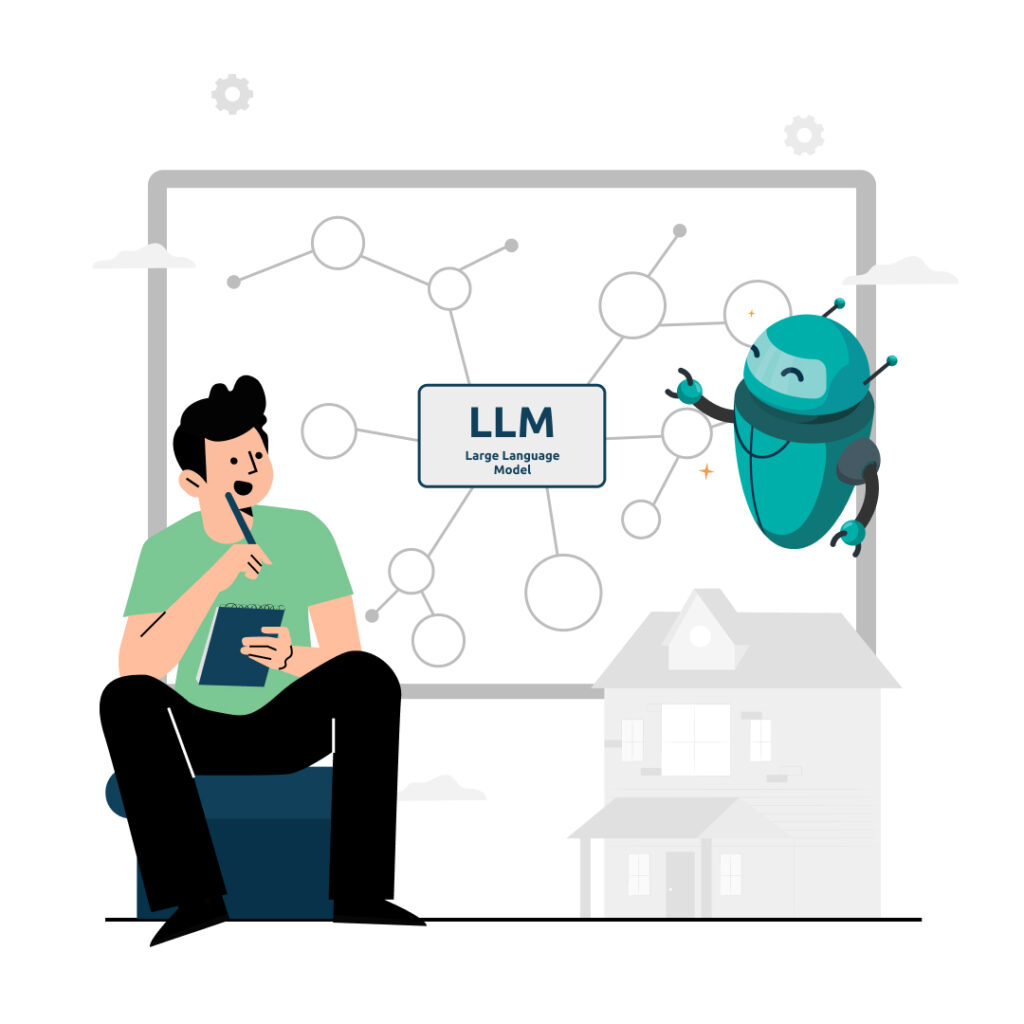Unlocking the Power of CRM in Real Estate: A Comprehensive Guide
In the ever-evolving landscape of real estate, staying ahead of the game isn’t just about finding the perfect property or closing deals – it’s about nurturing relationships. That’s where CRM (Customer Relationship Management) comes into play. If you’re new to the term or wondering how it fits into the world of real estate, this guide is your one-stop destination.
Defining CRM and Its Evolution in Real Estate
CRM isn’t just a buzzword; it’s a game-changer in the real estate industry. At its core, CRM refers to the technology, strategies, and practices used by businesses to manage and analyze customer interactions throughout the customer lifecycle, with the goal of improving relationships and driving sales growth.
But how did CRM find its way into the real estate realm? Let’s rewind a bit. Traditionally, real estate agents relied on spreadsheets, sticky notes, and their memory to keep track of leads and client information. As the industry became more competitive and technology advanced, there arose a need for a more sophisticated approach to managing client relationships.
Enter CRM systems tailored specifically for real estate. These platforms revolutionized how agents and agencies handle their day-to-day operations, offering a centralized hub for storing client data, tracking interactions, and streamlining communication.
Importance of CRM in Modern Real Estate Operations
In today’s fast-paced real estate market, every second counts. With clients expecting instant responses and personalized service, manual methods simply won’t cut it anymore. Here’s where CRM swoops in to save the day.
- Efficiency: Time is money, especially in real estate. CRM systems automate repetitive tasks like lead follow-ups and appointment scheduling, freeing up valuable time for agents to focus on what they do best—closing deals.
- Organization: Say goodbye to the days of digging through piles of paperwork to find a client’s contact information. CRM software keeps everything neatly organized and easily accessible, allowing agents to retrieve vital details with just a few clicks.
- Personalization: No two clients are alike, and CRM helps agents tailor their approach accordingly. By tracking client preferences and past interactions, agents can deliver personalized recommendations and communications that resonate with their audience.
- Insights: Knowledge is power, and CRM provides agents with valuable insights into their business performance. From tracking lead conversion rates to analyzing marketing campaign effectiveness, CRM data empowers agents to make data-driven decisions that drive results.
In essence, CRM isn’t just a tool – it’s a strategic asset that enables real estate professionals to work smarter, not harder. By leveraging the power of CRM, agents can build stronger relationships, close more deals, and ultimately, thrive in today’s competitive market.
So, whether you’re a seasoned agent looking to streamline your workflow or a newcomer eager to make your mark in the industry, embracing CRM is the key to unlocking your full potential in real estate. Stay tuned as we delve deeper into the world of CRM and explore how it can transform your business.
Unveiling the Core Features and Functionalities of CRM for Real Estate Agents
In the bustling world of real estate, success often hinges on the ability to juggle multiple tasks while maintaining strong client relationships. Fortunately, CRM (Customer Relationship Management) systems are here to lend a helping hand. Let’s dive into the core features and functionalities that make CRM indispensable for real estate agents.
Lead Management: Streamlining Prospecting and Follow-ups
Gone are the days of scribbling down leads on scraps of paper or losing track of promising prospects in a sea of emails. With CRM’s lead management capabilities, real estate agents can efficiently track and nurture leads throughout the sales pipeline.
- Lead Capture: CRM systems allow agents to capture leads from various sources, including website inquiries, social media, and open house sign-ups. By centralizing lead information in one place, agents can ensure no opportunity slips through the cracks.
- Lead Segmentation: Not all leads are created equal. CRM enables agents to categorize leads based on criteria such as location, budget, and stage in the buying process. This segmentation facilitates targeted marketing efforts and personalized follow-ups.
- Automated Follow-ups: Consistent follow-up is key to converting leads into clients. CRM automates follow-up tasks, sending timely emails or reminders to keep leads engaged and moving through the sales funnel.
- Lead Scoring: CRM systems assign scores to leads based on their level of engagement and likelihood to convert. This helps agents prioritize their efforts and focus on high-potential leads, maximizing their chances of success.
With lead management tools at their disposal, real estate agents can streamline their prospecting efforts, stay organized, and ultimately, close more deals.
Contact Management: Organizing Client Information Effectively
In the world of real estate, client relationships are everything. CRM’s contact management features empower agents to keep track of client information, interactions, and preferences with ease.
- Centralized Database: CRM serves as a centralized hub for storing all client-related information, including contact details, property preferences, communication history, and more. This eliminates the need for spreadsheets or disparate systems, ensuring that agents have instant access to critical information.
- Customizable Profiles: Each client is unique, and CRM allows agents to create customizable profiles for each contact. From basic contact information to detailed notes and preferences, agents can tailor client profiles to better serve their needs.
- Communication History: Ever find yourself struggling to remember the details of a past conversation with a client? CRM tracks all communication history, including emails, phone calls, and meetings, providing agents with a comprehensive view of their interactions.
- Task Reminders: CRM systems can be set up to send reminders for important tasks, such as follow-up calls or property showings. This ensures that agents stay on top of their to-do list and never miss a beat.
By leveraging contact management features, real estate agents can build stronger relationships with their clients, anticipate their needs, and deliver exceptional service at every step of the journey.
Communication Tools: Enhancing Client Interactions
Effective communication is the cornerstone of successful real estate transactions. CRM equips agents with a suite of communication tools to engage clients, foster relationships, and drive business growth.
- Email Integration: CRM seamlessly integrates with email platforms, allowing agents to send and receive emails directly from the CRM interface. This streamlines communication and ensures that all correspondence is logged and tracked within the system.
- SMS Messaging: In today’s mobile-centric world, SMS messaging is an invaluable communication channel. CRM enables agents to send personalized text messages to clients, keeping them informed and engaged throughout the buying or selling process.
- Call Logging: Every phone call is an opportunity to strengthen client relationships. CRM logs all incoming and outgoing calls, along with relevant details such as call duration and outcome. This enables agents to track their communication efforts and follow up on important conversations.
- Appointment Scheduling: Coordinating appointments can be a logistical challenge, but CRM simplifies the process with built-in scheduling tools. Agents can easily book appointments, send reminders to clients, and sync schedules across devices, ensuring smooth and efficient communication.
From email integration to appointment scheduling, CRM’s communication tools empower real estate agents to deliver timely, personalized communication that resonates with clients and drives results.
Task Automation: Boosting Efficiency in Daily Operations
In the fast-paced world of real estate, time is of the essence. CRM’s task automation capabilities allow agents to automate repetitive tasks, streamline workflows, and focus their time and energy on high-value activities.
- Automated Email Campaigns: CRM systems enable agents to create and schedule automated email campaigns targeted at specific segments of their client base. Whether it’s sending out newsletters, market updates, or property listings, automation ensures that agents stay top of mind with their clients without lifting a finger.
- Appointment Reminders: Missed appointments can derail the homebuying process and damage client relationships. CRM automates appointment reminders, sending notifications to clients via email or SMS to ensure that they show up on time and prepared.
- Task Assignment: In a team environment, coordinating tasks among team members can be challenging. CRM allows agents to assign tasks to team members, set deadlines, and track progress – all from within the system. This promotes accountability and collaboration, leading to smoother operations and better outcomes.
- Follow-up Sequences: Consistent follow-up is critical for nurturing leads and maintaining client relationships. CRM enables agents to create follow-up sequences, automatically triggering follow-up actions based on predefined criteria or client interactions. This ensures that no lead falls through the cracks and that clients receive the attention they deserve.
By automating repetitive tasks, CRM frees up valuable time for real estate agents to focus on activities that drive revenue and deliver exceptional service to their clients.
CRM is a game-changer for real estate agents, offering a wealth of features and functionalities designed to streamline operations, enhance client relationships, and drive business growth. From lead management to task automation, CRM empowers agents to work smarter, not harder, and achieve greater success in today’s competitive market. So if you’re ready to take your real estate business to the next level, it’s time to harness the power of CRM.
Maximizing Client Relationships: The Power of CRM
Nurturing strong client relationships is essential for success in the dynamic world of business. Whether you’re in real estate, finance, or any other industry, maintaining a personal connection with your clients can make all the difference. That’s where CRM (Customer Relationship Management) comes into play. Let’s delve into how you can leverage CRM to supercharge your client relationship management strategies.
Personalized Client Engagement Strategies
In a sea of generic interactions, personalized communication stands out like a beacon of light. With CRM, you can tailor your client engagement strategies to meet the unique needs and preferences of each individual.
CRM systems allow you to gather valuable insights about your clients, including their communication preferences, purchase history, and interests. Armed with this information, you can craft personalized messages and offers that resonate with each client on a deeper level.
Whether it’s sending a birthday greeting, recommending relevant products or services, or following up on a previous conversation, personalized engagement shows your clients that you value their business and care about their needs.
Automated Communication Workflows for Consistent Follow-ups
Consistency is key when it comes to client follow-ups. However, in the midst of busy schedules and competing priorities, staying on top of follow-ups can be challenging. That’s where automated communication workflows come in handy.
CRM allows you to set up automated workflows that trigger follow-up actions based on predefined criteria or client interactions. Whether it’s sending a thank-you email after a purchase, following up on a sales inquiry, or scheduling a check-in call, automated workflows ensure that no client falls through the cracks.
By automating routine communication tasks, you can stay connected with your clients without adding extra stress to your workload. This not only helps you maintain a consistent presence in their lives but also frees up time for more meaningful interactions.
Customized Property Recommendations Based on Client Preferences
In the real estate industry, understanding your clients’ preferences is crucial for matching them with their dream property. CRM enables you to capture and analyze data about your clients’ preferences, including location, budget, amenities, and more.
Armed with this information, you can provide customized property recommendations that align with your clients’ specific needs and preferences. Whether they’re looking for a cozy apartment in the city or a spacious family home in the suburbs, you can use CRM to tailor your property recommendations to their unique criteria.
By delivering personalized property suggestions, you demonstrate your expertise and commitment to helping your clients find the perfect home. This not only enhances their overall experience but also increases the likelihood of a successful transaction.
Monitoring and Nurturing Long-term Client Relationships
Client relationships shouldn’t end once the transaction is complete. In fact, nurturing long-term relationships is essential for fostering loyalty and generating repeat business and referrals. CRM allows you to monitor and nurture these relationships over time.
CRM systems provide valuable insights into your clients’ interactions with your business, including their communication history, purchase behavior, and feedback. Armed with this information, you can identify opportunities to reconnect with past clients, offer additional services or support, and stay top of mind for future transactions.
By proactively monitoring and nurturing long-term client relationships, you can build a loyal customer base that continues to support your business for years to come. This not only increases customer satisfaction and loyalty but also drives repeat business and referrals, ultimately contributing to your bottom line.
CRM is a powerful tool for enhancing client relationship management across industries. Whether you’re a real estate agent, financial advisor, or small business owner, leveraging CRM can help you personalize your client engagement strategies, automate routine communication tasks, provide customized recommendations, and nurture long-term relationships. By harnessing the power of CRM, you can strengthen your connections with clients, drive loyalty and repeat business, and ultimately, achieve greater success in your business endeavors.
Elevating Your Real Estate Marketing Game with CRM Integration
Effective marketing is essential for standing out from the crowd and attracting potential buyers and sellers. While traditional marketing methods still have their place, integrating Customer Relationship Management (CRM) systems into your marketing strategies can take your efforts to the next level. Let’s explore how CRM integration can revolutionize your real estate marketing game.
Targeted Email Campaigns: Engaging Leads and Clients
Email marketing remains one of the most powerful tools in a marketer’s arsenal, and CRM integration can supercharge your email campaigns by enabling targeted and personalized communication.
CRM systems allow you to segment your email lists based on criteria such as location, buying preferences, and past interactions. This segmentation enables you to send highly targeted and relevant emails to different groups of leads and clients, increasing the likelihood of engagement and conversion.
Whether it’s sending out newsletters with market updates, promoting new listings, or following up with past clients, CRM integration ensures that your email campaigns hit the mark every time.
Social Media Integration: Amplifying Brand Presence and Engagement
In today’s digital age, social media is a powerful platform for connecting with potential buyers and sellers and amplifying your brand presence. By integrating CRM with your social media marketing efforts, you can take your social strategy to new heights.
CRM systems allow you to track social media interactions and engagements with your brand, providing valuable insights into your audience’s interests and preferences. This data enables you to tailor your social media content to better resonate with your target audience, driving engagement and fostering meaningful connections.
From posting property listings and virtual tours to sharing helpful tips and resources, CRM integration empowers you to create content that captures the attention of your followers and keeps them coming back for more.
Website Integration: Enhancing User Experience and Lead Generation
Your website is often the first point of contact between potential clients and your business, making it crucial to provide a seamless and engaging user experience. CRM integration can help enhance your website’s functionality and effectiveness as a lead generation tool.
CRM systems enable you to capture and track website visitor data, such as page views, form submissions, and downloads. This information allows you to gain insights into your visitors’ behavior and preferences, enabling you to tailor your website content and offerings to better meet their needs.
By integrating CRM with your website, you can also automate lead capture and follow-up processes, ensuring that no potential lead falls through the cracks. Whether it’s sending personalized follow-up emails or scheduling follow-up calls, CRM integration helps you nurture leads and guide them through the sales funnel.
Analytics and Reporting: Tracking Campaign Performance and ROI
Effective marketing is not just about implementing strategies; it’s also about measuring their impact and optimizing for success. CRM integration enables you to track and analyze the performance of your marketing campaigns, providing valuable insights into their effectiveness and return on investment (ROI).
CRM systems offer robust analytics and reporting capabilities, allowing you to track key metrics such as email open rates, click-through rates, social media engagement, website traffic, and more. Armed with this data, you can identify which marketing channels and campaigns are driving the best results and allocate your resources accordingly.
Additionally, CRM integration enables you to attribute leads and sales to specific marketing campaigns, providing a clear picture of your marketing ROI. This insight empowers you to refine your marketing strategies, focus on what works, and optimize your efforts for maximum impact and efficiency.
CRM integration is a game-changer for real estate marketing, enabling you to create targeted email campaigns, amplify your brand presence on social media, enhance your website’s user experience, and track campaign performance and ROI. By leveraging the power of CRM, you can take your real estate marketing to new heights and achieve greater success in today’s competitive market.
Maximizing Efficiency: How CRM Transforms Real Estate Agencies
Operational efficiency can mean the difference between thriving and merely surviving in the fast-paced world of real estate. With the advent of Customer Relationship Management (CRM) systems, real estate agencies have found a powerful ally in their quest for productivity and growth. Let’s explore how CRM enhances operational efficiency in real estate agencies across the board.
Streamlining Administrative Tasks: Time and Resource Optimization
Administrative tasks are an unavoidable aspect of running a real estate agency, but they can also be incredibly time-consuming and resource-intensive. CRM systems streamline these tasks, freeing up valuable time and resources for more strategic activities.
From scheduling appointments and managing client communications to generating reports and tracking expenses, CRM automates and centralizes administrative processes, reducing the need for manual intervention and minimizing the risk of errors.
By streamlining administrative tasks, CRM enables real estate agents and staff to focus their efforts on activities that directly contribute to business growth, such as lead generation, client engagement, and sales.
Centralized Data Management: Improving Accessibility and Accuracy
In the world of real estate, access to accurate and up-to-date data is essential for making informed decisions and delivering exceptional service to clients. CRM systems provide a centralized hub for storing and managing all client and property data, ensuring accessibility and accuracy across the board.
Whether it’s client contact information, property details, transaction history, or communication logs, CRM consolidates data from various sources into a single, easily accessible platform.
This centralized approach not only improves efficiency by eliminating the need to search through multiple systems or files but also enhances data accuracy by reducing the risk of duplication or inconsistency.
Collaboration and Team Coordination: Facilitating Seamless Workflows
Real estate transactions often involve multiple stakeholders, including agents, brokers, lenders, and legal professionals. Effective collaboration and coordination are essential for ensuring smooth and successful transactions.
CRM systems facilitate collaboration and team coordination by providing a shared platform for communication, task assignment, and file sharing.
Whether it’s collaborating on a listing presentation, coordinating a property showing, or updating transaction status, CRM enables real estate professionals to work together seamlessly, regardless of their location or role.
By fostering collaboration and team coordination, CRM enhances communication, reduces bottlenecks, and accelerates the pace of transactions, ultimately improving client satisfaction and loyalty.
Scalability and Growth: Adapting CRM Systems to Changing Needs
As real estate agencies grow and evolve, their needs and requirements change. CRM systems are designed to scale with businesses, allowing them to adapt to changing needs and accommodate growth seamlessly.
Whether it’s adding new users, expanding into new markets, or integrating with additional tools and systems, CRM systems are flexible and customizable to meet the unique needs of each agency.
This scalability enables real estate agencies to future-proof their operations, ensuring that their CRM system can grow and evolve alongside their business, without the need for costly and disruptive upgrades or migrations.
CRM systems are a game-changer for real estate agencies, offering a wide range of benefits that enhance operational efficiency and drive business growth. From streamlining administrative tasks and centralizing data management to facilitating collaboration and scalability, CRM systems empower real estate professionals to work smarter, not harder, and achieve greater success in today’s competitive market.
Unlocking Success: Navigating the Journey of CRM Adoption
Customer Relationship Management (CRM) systems have emerged as indispensable tools for organizations looking to streamline operations, enhance customer relationships, and drive growth. However, adopting a CRM solution is not without its challenges. From data privacy concerns to user adoption hurdles, the journey of CRM adoption can be fraught with obstacles. Let’s explore how businesses can overcome these challenges and maximize the benefits of CRM adoption.
Addressing Data Privacy and Security Concerns
One of the foremost concerns surrounding CRM adoption is data privacy and security. With the increasing prevalence of data breaches and cyber threats, businesses must prioritize the protection of sensitive customer information.
To address these concerns, businesses should choose reputable CRM providers that offer robust security features, such as data encryption, access controls, and regular security audits. Additionally, businesses should implement strict data privacy policies and procedures to ensure compliance with relevant regulations, such as GDPR or CCPA.
By taking proactive measures to address data privacy and security concerns, businesses can instill confidence in their customers and stakeholders and pave the way for a successful CRM implementation.
Ensuring User Adoption and Training for Optimal Utilization
Another common challenge in CRM adoption is ensuring user adoption and training. Despite the myriad benefits of CRM systems, employees may resist change or struggle to adapt to new tools and processes.
To overcome this challenge, businesses should invest in comprehensive user training programs to familiarize employees with the CRM system’s features and functionalities. This training should be ongoing and tailored to different user roles and skill levels, ensuring that all employees feel comfortable using the CRM system in their day-to-day work.
Additionally, businesses should appoint CRM champions within their organization—employees who are enthusiastic about the CRM system and can serve as advocates and mentors for their peers. By fostering a culture of support and encouragement, businesses can increase user adoption and maximize the benefits of CRM adoption.
Integrating CRM with Existing Systems and Workflows
Integration with existing systems and workflows is another key consideration in CRM adoption. Many businesses already use a variety of tools and platforms to manage their operations, from accounting software to email marketing platforms.
To maximize the benefits of CRM adoption, businesses should seek CRM solutions that offer seamless integration with their existing systems and workflows. This integration allows for the free flow of data between different systems, eliminating silos and ensuring a holistic view of customer interactions and relationships.
Additionally, businesses should work closely with their IT teams or third-party integrators to customize and optimize the CRM integration to meet their specific needs and requirements. By aligning the CRM system with existing processes and workflows, businesses can minimize disruption and facilitate a smooth transition to the new system.
Continuous Evaluation and Improvement of CRM Strategies
Finally, successful CRM adoption is an ongoing process that requires continuous evaluation and improvement. Once the CRM system is implemented, businesses should regularly assess its performance and effectiveness, gathering feedback from users and stakeholders to identify areas for improvement.
This evaluation process should encompass not only the technical aspects of the CRM system but also its impact on business outcomes, such as customer satisfaction, sales performance, and operational efficiency.
Based on these insights, businesses can make data-driven decisions to optimize their CRM strategies, whether it’s refining workflows, introducing new features and functionalities, or providing additional training and support to users.
By embracing a culture of continuous improvement, businesses can ensure that their CRM system evolves with their needs and delivers maximum value over time.
In conclusion, while CRM adoption may present challenges, the benefits far outweigh the obstacles. By addressing data privacy and security concerns, ensuring user adoption and training, integrating CRM with existing systems and workflows, and continuously evaluating and improving CRM strategies, businesses can overcome challenges and unlock the full potential of CRM adoption. With the right approach and mindset, businesses can transform their operations, enhance customer relationships, and drive sustainable growth with CRM.
Navigating the Maze: Choosing the Perfect CRM Solution for Your Real Estate Business
In the bustling world of real estate, where every interaction matters, finding the right CRM (Customer Relationship Management) solution can be a game-changer. However, with a myriad of options available in the market, selecting the perfect CRM for your real estate business can feel like navigating a maze. Fear not! Let’s break down the process into manageable steps to help you choose the CRM solution that aligns seamlessly with your business needs and objectives.
Assessing Business Needs and Objectives
Before diving into the sea of CRM options, take a step back and assess your business needs and objectives. What are your primary goals for implementing a CRM system? Are you looking to streamline lead management, enhance client relationships, or improve operational efficiency?
Consider factors such as the size of your real estate agency, the volume of transactions you handle, and the specific challenges you face in your day-to-day operations. By gaining a clear understanding of your business needs and objectives, you can narrow down your options and focus on CRM solutions that are tailored to your unique requirements.
Evaluating Key Features and Integration Capabilities
Once you’ve identified your business needs and objectives, it’s time to dive deeper into the features and capabilities offered by different CRM solutions. Look for key features such as lead management, contact management, communication tools, task automation, and analytics and reporting.
Consider whether the CRM solution integrates seamlessly with other tools and systems you use in your real estate business, such as email marketing platforms, accounting software, and listing portals. Integration capabilities are crucial for ensuring a smooth flow of data and workflows across different systems, eliminating duplication and streamlining operations.
Considering Budgetary Constraints and Scalability Requirements
Budget is always a key consideration when selecting a CRM solution for your real estate business. Evaluate the cost of implementation, including setup fees, subscription costs, and any additional charges for customization or support services.
While it’s important to choose a CRM solution that fits within your budget, don’t forget to consider scalability requirements. As your real estate business grows, so will your CRM needs. Choose a solution that offers flexible pricing plans and scalability options, allowing you to scale up or down as needed without breaking the bank.
Seeking Recommendations and Reviews from Industry Peers
Finally, don’t underestimate the power of recommendations and reviews from industry peers. Reach out to other real estate professionals, colleagues, and industry associations for their insights and recommendations on CRM solutions they have used or are currently using.
Additionally, take the time to read reviews and testimonials from other real estate professionals who have experience with the CRM solutions you’re considering. Pay attention to factors such as ease of use, customer support, and overall satisfaction levels to help inform your decision-making process.
By seeking recommendations and reviews from industry peers, you can gain valuable insights and perspectives that can help you make an informed decision and choose the right CRM solution for your real estate business.
In conclusion, selecting the right CRM solution for your real estate business requires careful consideration of your business needs and objectives, evaluation of key features and integration capabilities, consideration of budgetary constraints and scalability requirements, and seeking recommendations and reviews from industry peers. By following these steps and taking a systematic approach, you can navigate the maze of CRM options and choose the solution that’s perfect for your real estate business.
Conclusion: Embracing CRM for Real Estate Excellence
In the fast-paced world of real estate, where every interaction counts, Customer Relationship Management (CRM) has emerged as a cornerstone for success. As we conclude our exploration of CRM for the real estate industry, let’s reflect on its significance and potential in shaping the future of the field.
CRM isn’t just a tool; it’s a strategic imperative for real estate professionals. It streamlines administrative tasks, centralized data management, fosters collaboration, and enhances client relationships – all essential ingredients for success in today’s competitive market.
By embracing CRM, real estate agencies can unlock new levels of efficiency, productivity, and client satisfaction. Automated workflows, personalized communication, and data-driven insights empower agents to navigate the complexities of the market and deliver exceptional service to their clients.
But CRM implementation is just the beginning. To truly reap the rewards, real estate professionals must commit to continuous improvement and optimization. By embracing feedback, evaluating performance metrics, and adapting strategies to evolving trends, agencies can stay ahead of the curve and achieve sustainable growth.
Looking ahead, the future of CRM in real estate is bright. As technology advances, we can expect CRM systems to become even more sophisticated, intuitive, and integrated. Artificial intelligence, machine learning, and mobile solutions will revolutionize how agents engage with clients and manage their businesses.
In conclusion, CRM is the cornerstone of success in the real estate industry. By harnessing its power, agencies can unlock new opportunities, build stronger relationships, and thrive in an ever-changing landscape. So let’s embrace CRM and pave the way for a brighter future in real estate.












